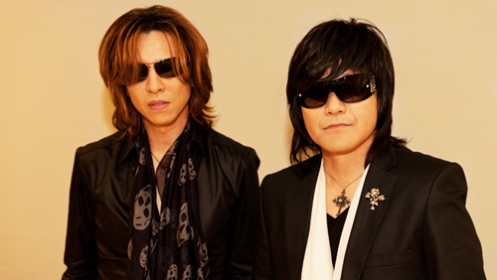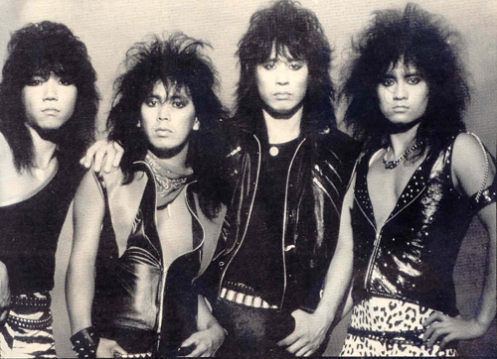X Japan: Bootlegged Beginnings
It was the winter of 2006 and the blistering cold stabbed right through my coat even after I walked into Shin-Osaka station. I’d just witnessed my first Yo La Tengo concert with a good friend of mine and, in an attempt to get to know him a bit better, I delved a bit deeper into his musical leanings. His favorite band, he explained to me as we climbed the escalator to the train platform, is the Beatles, but not because they wrote Sgt. Pepper or sold more albums than Jesus. No, he prefers the Beatles because of the wealth of bootlegs treasured and fawned over by music aficionados while the rest of the public remains content knowing what they know about the Beatles: Please Please Me through Let It Be.
Ah, the bootleg. A not entirely legal, yet time-honored tradition in music fandom that sets the truly dedicated apart even if only in their own minds. Still, legit or not, it can’t be argued that these scratchy recordings often taped by smuggled audio equipment can provide some insight into how the band so meticulously edited and polished on their official albums came to be.
At least that’s what I hoped when I began listening to some long-forgotten bootlegs from X Japan’s past. I’ve known them only as the sold-out Tokyo Dome kings of Visual Kei that they were in their heyday. What, I wondered, could they have possibly sounded like without a full stage crew or a legion of fans screaming their lyrics back at them. What did they sound like at say, their high school festival in 1983? I was about to find out.
Various interviews and scattered details strewn about the net all seem to agree that Yoshiki Hayashi (known simply as Yoshiki) and Toshimitsu “Toshi” Deyama formed the band that would become X Japan in 1982 while still attending high school. At least five tracks from this early time exist; recorded at Awa High School in Chiba Prefecture (if the bootlegger’s notation can be believed).
To say they sounded rough would be putting it lightly, but I’m not here to pick on the high school incarnations of future rock stars. It’s worth mentioning that one track quotes Deep Purple’s “Burn” before segueing into “The World Anthem” by Frank Marino; a track they continued to play live and on 1989’s Blue Blood. At the very least we can point to these two rock icons of that period as some sort of influence on the then still-percolating X, but it is the third track on this bootleg that is even more telling.
Starting with the iconic clock chime permanently burned into the heads of every Japanese school kid, Toshi suddenly erupts wildly into Loudness’ “In the Mirror.”
Loudness, it seems, was a few steps and a few years ahead of the youthful Yoshiki and Toshi, but shared a similar path. Loudness started as Lazy, formed in 1977 by a group of high school students and named for the song by, you guessed it, Deep Purple.
Lazy was forced into a boy band mold despite their desire to rock out leading to an eventual break up in 1981 and the forming of Loudness the same year. Logically then it follows that Loudness’ rock ‘n’ roll antics would influence two would-be rockers planning and plotting between classes. But if you need proof, I submit that one can not watch a performance of Loudness’ “In the Mirror” followed by X’s admittedly darker “I’ll Kill You” (a song already in the works in 1983) without seeing a natural progression from one to the other.
Influences aside, this high school recording also contains many of the hallmarks of the X that was to come.
The bootleg continues with “We Are X,” a song that sounds almost nothing like what would become “X” on Blue Blood. Yet the melodic and foreboding lead-in before the inevitable explosion into machine gun drum hits and Toshi’s searing vocals over a flood of electric guitar trills is all there. It’s rough as hell, but it’s there. The bootleg concludes with “I’ll Kill You” which is slow, unfinished but otherwise not too different from the track that eventually wound up on the band’s first full album, Vanishing Vision in 1988.
Also present is English. That’s right. Even at their earliest, X included at least the occasional English phrase. Whether this was the result of their English language rock influences or just a prophecy of what may still be to come is anybody’s guess.
Want to hear some of the X Japan tracks mentioned in this post? Check out this podcast featuring old and new versions of X Japan’s “I’ll Kill You.”



